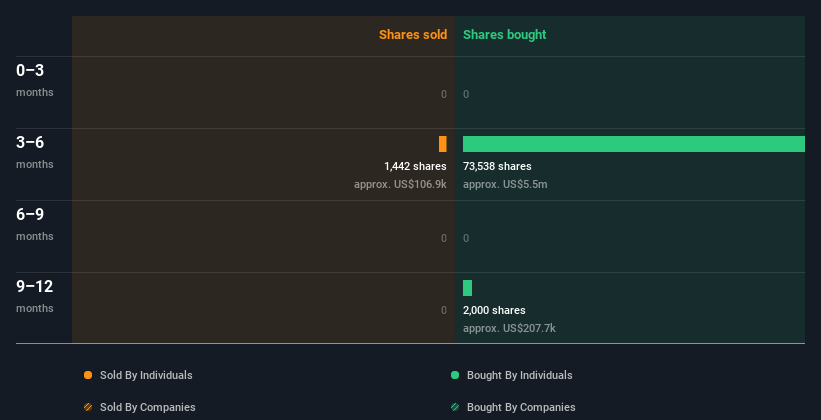Having purchased US$5.7m worth of General Electric Company (NYSE:GE) stock, the recent 4.1% pullback is not what insiders may have expected
The recent 4.1% drop in General Electric Company's (NYSE:GE) stock could come as a blow to insiders who purchased US$5.7m worth of stock at an average buy price of US$75.36 over the past 12 months. Insiders invest with the hopes of seeing their money grow in value over time. However, as a result of recent losses, their initial investment is now only worth US$4.7m, which is not what they expected.
While we would never suggest that investors should base their decisions solely on what the directors of a company have been doing, logic dictates you should pay some attention to whether insiders are buying or selling shares.
Check out our latest analysis for General Electric
General Electric Insider Transactions Over The Last Year
In the last twelve months, the biggest single purchase by an insider was when Chairman & CEO H. Culp bought US$4.8m worth of shares at a price of US$75.26 per share. That means that even when the share price was higher than US$61.91 (the recent price), an insider wanted to purchase shares. Their view may have changed since then, but at least it shows they felt optimistic at the time. To us, it's very important to consider the price insiders pay for shares. Generally speaking, it catches our eye when insiders have purchased shares at above current prices, as it suggests they believed the shares were worth buying, even at a higher price.
Over the last year, we can see that insiders have bought 75.54k shares worth US$5.7m. On the other hand they divested 1.44k shares, for US$107k. In the last twelve months there was more buying than selling by General Electric insiders. You can see the insider transactions (by companies and individuals) over the last year depicted in the chart below. If you click on the chart, you can see all the individual transactions, including the share price, individual, and the date!
General Electric is not the only stock that insiders are buying. For those who like to find winning investments this free list of growing companies with recent insider purchasing, could be just the ticket.
Insider Ownership
Looking at the total insider shareholdings in a company can help to inform your view of whether they are well aligned with common shareholders. Usually, the higher the insider ownership, the more likely it is that insiders will be incentivised to build the company for the long term. It's great to see that General Electric insiders own 0.2% of the company, worth about US$165m. Most shareholders would be happy to see this sort of insider ownership, since it suggests that management incentives are well aligned with other shareholders.
So What Does This Data Suggest About General Electric Insiders?
The fact that there have been no General Electric insider transactions recently certainly doesn't bother us. However, our analysis of transactions over the last year is heartening. Judging from their transactions, and high insider ownership, General Electric insiders feel good about the company's future. Of course, the future is what matters most. So if you are interested in General Electric, you should check out this free report on analyst forecasts for the company.
Of course General Electric may not be the best stock to buy. So you may wish to see this free collection of high quality companies.
For the purposes of this article, insiders are those individuals who report their transactions to the relevant regulatory body. We currently account for open market transactions and private dispositions, but not derivative transactions.
Have feedback on this article? Concerned about the content? Get in touch with us directly. Alternatively, email editorial-team (at) simplywallst.com.
This article by Simply Wall St is general in nature. We provide commentary based on historical data and analyst forecasts only using an unbiased methodology and our articles are not intended to be financial advice. It does not constitute a recommendation to buy or sell any stock, and does not take account of your objectives, or your financial situation. We aim to bring you long-term focused analysis driven by fundamental data. Note that our analysis may not factor in the latest price-sensitive company announcements or qualitative material. Simply Wall St has no position in any stocks mentioned.
Join A Paid User Research Session
You’ll receive a US$30 Amazon Gift card for 1 hour of your time while helping us build better investing tools for the individual investors like yourself. Sign up here

 Yahoo Finance
Yahoo Finance 
